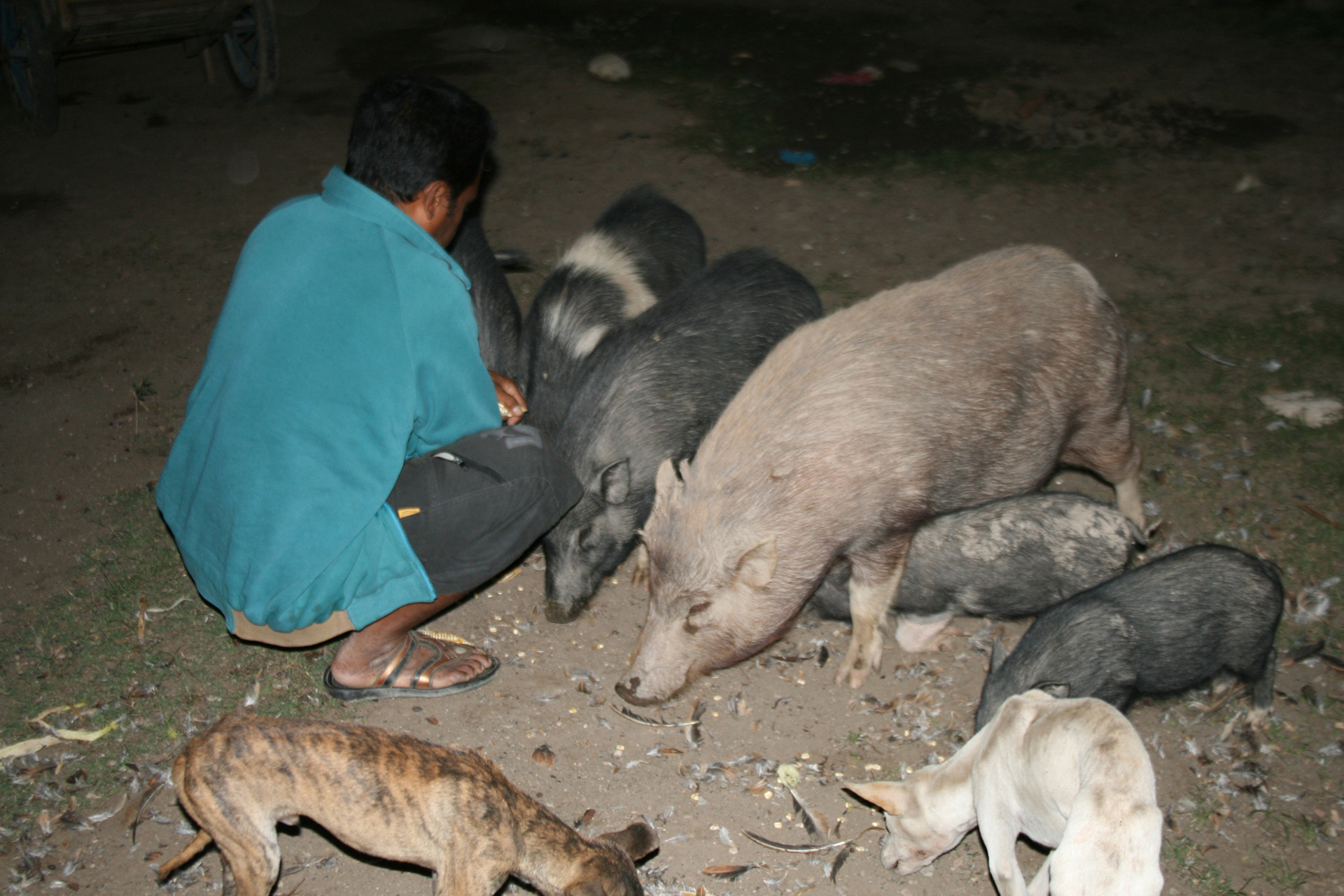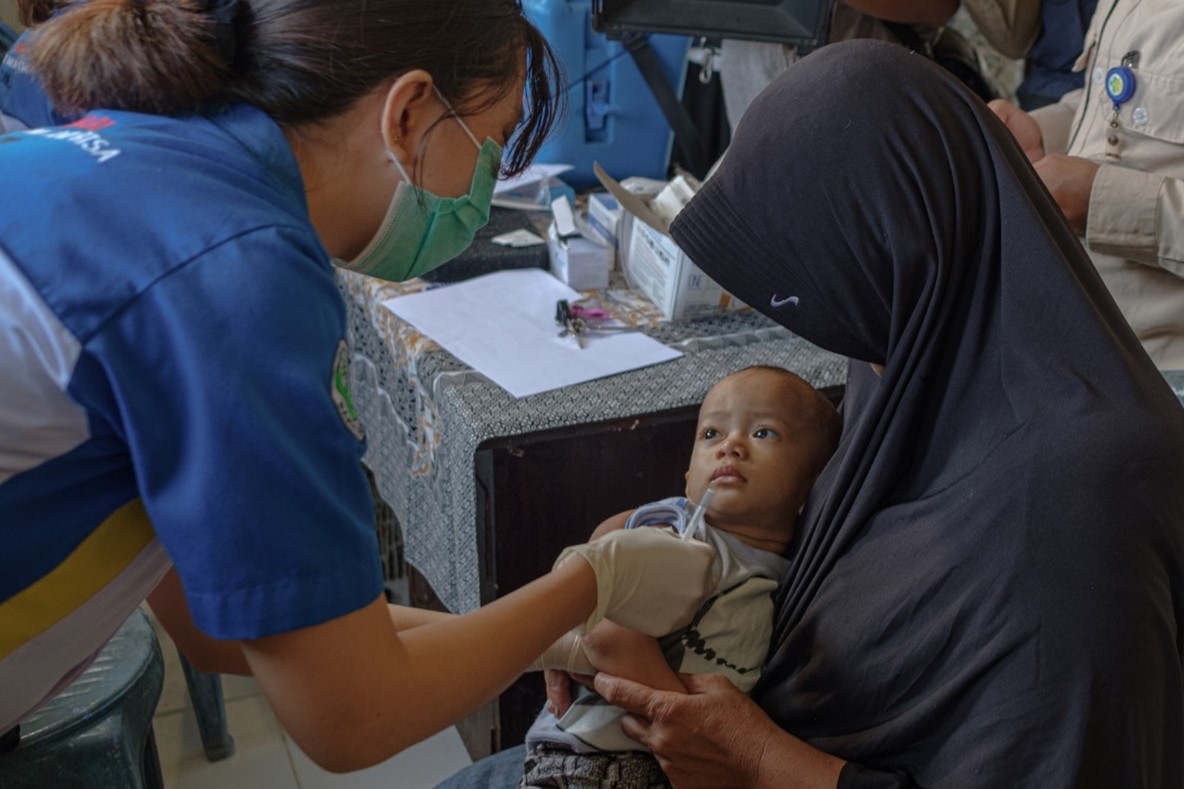The COVID-19 pandemic has diverted resources away from various health programmes, including Japanese encephalitis control, leading to a neglect of surveillance efforts and a delay in the expansion of Japanese encephalitis vaccination initiatives. Furthermore, Indonesia currently lacks a coordinated national strategy to guide its Japanese encephalitis infection control programme.
Japanese encephalitis virus (JEV) is the top cause of viral brain inflammation (encephalitis) in Asia, recording a fatality rate of up to 30% and leaving as many as 50% of cases with long-term neurologic or psychiatric conditions. The COVID-19 pandemic disrupted Indonesia’s surveillance in 11 provinces and vaccination in Bali, the highest-risk province, for this disease, against which there is currently no effective treatment.

Pigs act as important reservoir hosts for Japanese encephalitis virus. Credits: WHO/Joao Soares Gusmao
WHO supported Indonesia to restart both surveillance and vaccination in priority provinces, to expand vaccination to other high-risk provinces, and to eventually sustain them in the longer term. WHO has actively supported the Ministry of Health (MoH) with three key interventions to control JEV infection. Firstly, WHO has played a crucial role in revitalizing JE surveillance efforts in the country. Focusing on West Kalimantan, a low-performing province, WHO facilitated coordination and consultation meetings, along with reorientation workshops involving provincial health officers, laboratory officers, district health officers, and personnel from surveillance hospitals. The aim was to strengthen the surveillance network, especially in light of the pandemic-induced disruptions, ensuring effective data collection to support JE control measures.
Secondly, WHO has been instrumental in the development of a comprehensive national strategy for managing Japanese encephalitis. Collaborating with experts from the Gadjah Mada University, WHO and MoH identified five key strategies for 2023–2027, namely strengthening surveillance systems, expanding childhood immunization coverage, implementing effective controls for vectors and reservoirs such as pigs, enhancing commitment and coordination at various government levels, and promoting innovation and research supporting JE countermeasure programmes. WHO's support extends to defining indicator targets, budget forecasting, identifying funding sources and gaps, and outlining the roles of various stakeholders.

Moh. Zafran, accompanied by his grandmother Masita Yuliana, was vaccinated at the Pakavani Indah Posyandu, Parigi Moutong District, Central Sulawesi. Credits: WHO/Iqbal Lubis
Thirdly, WHO has actively participated in preparing for the introduction of JEV vaccination in new endemic provinces, focusing on West Kalimantan. This involves capacity-building activities for immunization programme managers, logistics managers, and health offices at both provincial and district levels. The objective is to ensure a smooth expansion of vaccination efforts by increasing knowledge and skills among key personnel. WHO's role extends to essential supply procurement such as special pen markers for the immunization campaign, advocacy and awareness-raising, orientation and refresher activities, coordination meetings with health offices, and comprehensive monitoring and evaluation activities to assess the progress and effectiveness of the vaccination programme.
Overall, WHO's multifaceted support underscores its commitment to enhancing JE control measures in Indonesia, addressing surveillance, strategic planning, and vaccine introduction preparations.
The combination of robust surveillance, strategic planning, and vaccination will not only protect individuals from the threats of JE but also contribute to the broader goal of ensuring a healthier future for all children in Indonesia. In the absence of a definitive treatment for this disease, this initiative underscores the importance of WHO’s support in Indonesia’s JE control programme.
Following the completion of the national strategy for JE surveillance for the period 2023–2027, MoH is currently developing new national guidelines for JE surveillance. WHO took part in overseeing this initiative, along with a JE expert committee, provincial health offices and Centres for Environmental Health and Disease Control in Yogyakarta, Surabaya, and Jakarta. WHO has actively collaborated in this guideline development process, providing insights aligned with regional and global guidelines. The finalization and dissemination of this guideline are scheduled for 2024.
WHO’s work to enhance Indonesia’s JE control efforts is supported by the Australian Government, GAVI Alliance, and the U.S. Government, through USAID and CDC.
Written by Rodri Tanoto, National Professional Officer (New Vaccine) and Joshua Harmani, National Professional Officer (VPD Surveillance), WHO Indonesia
